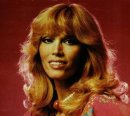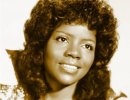Disco
Users contributing to this page: JanMalysiak
Disco is a music genre and subculture that emerged in the mid-1960s and early 1970s from America's urban nightlife scene. Disco started as a mixture of music from venues popular with African Americans, Hispanic and Latino Americans, Italian Americans, LGBT people (especially African-American and white gay men), and psychedelic hippies in Philadelphia and New York City during the late 1960s and early 1970s. Disco can be seen as a reaction to both the dominance of rock music and the stigmatization of dance music by the counterculture during this period. Several dance styles were also developed during this time, including the Bump and the Hustle.
The disco sound is typified by "four-on-the-floor" beats, syncopated basslines, and string sections, horns, electric piano, synthesizers, and electric rhythm guitars. Lead guitar features less frequently in disco than in rock. Well-known disco artists include Donna Summer, the Bee Gees, Gloria Gaynor, KC and the Sunshine Band, the Village People, Thelma Houston, and Chic, and many at the height of the genre's popularity, many non-disco artists recorded disco songs. While performers and singers garnered public attention, record producers working behind the scenes played an important role in developing the genre. Films such as Saturday Night Fever (1977) and Thank God It's Friday (1978) contributed to disco's mainstream popularity.
By the late 1970s, most major U.S. cities had thriving disco club scenes, and DJs would mix dance records at clubs such as Studio 54 in New York City, a venue popular among celebrities. Discothèque-goers often wore expensive, extravagant and sexy fashions. There was also a thriving drug subculture in the disco scene, particularly for drugs that would enhance the experience of dancing to the loud music and the flashing lights, such as cocaine and Quaaludes, the latter being so common in disco subculture that they were nicknamed "disco biscuits". Disco clubs were also associated with promiscuity.
Disco was the last popular music movement driven by the baby boom generation. It began to decline in the United States during 1979-80, and by 1982 it had lost nearly all popularity there. Disco Demolition Night, an anti-disco protest held in Chicago on July 12, 1979, remains the most well-known of several "backlash" incidents across the country that symbolized disco's declining fortune.
Disco was a key influence in the development of electronic dance music and house music. It has had several revivals, such as Madonna's highly successful 2005 album Confessions on a Dance Floor, and again in the 2010s, entering the pop charts in the US and the UK.
-
Bee Gees
-
 United Kingdom
United Kingdom
- 1958-2003, 2006, 2009-2012
-
-
Amanda Lear
-
 France
France
- 1965-present
-
-
Gloria Gaynor
-
 United States
United States
- 1965-present
-







